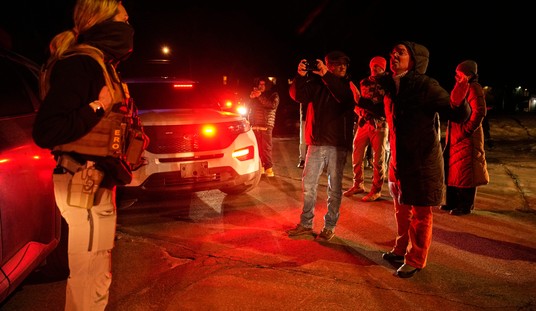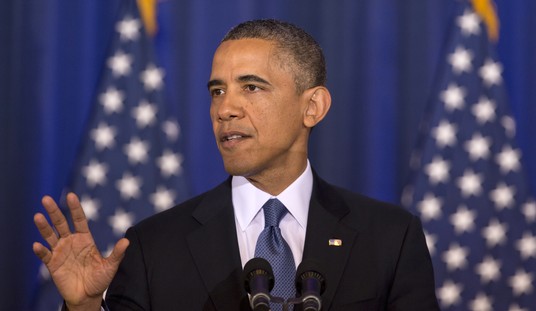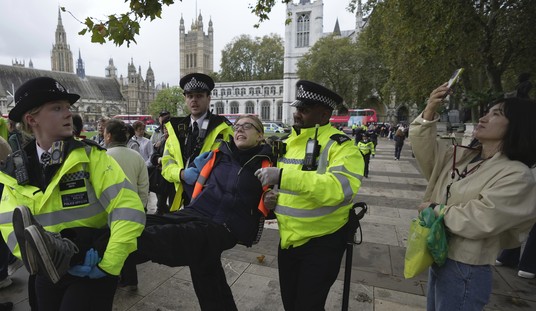Whatever one wants to call it, the little unpleasantness which hove into public view on September 11 continues to simmer. It will not be wished away. Yemeni security forces struck at an al-Qaeda stronghold on its border, claiming 34 mlitants killed. Other says over 60 were killed and most were civilians. The Telegraph describes “fears the unstable Arab state is becoming a strategically important base for al-Qaeda”.
Fearful that Yemen is in danger of becoming a failed state, America has now sent a small number of special forces teams to improve training of Yemen’s army in reaction to the threat.
“Yemen is becoming a reserve base for al-Qaeda’s activities in Pakistan and Afghanistan,” said a US military official.
“As Pakistan’s campaign on the frontier affects the syndicates of terror on its territory and operations step up in Afghanistan, it is a place that offers relief to al-Qaeda operatives.”
Sunni fundamentalists have gained a foothold within Yemen’s tribes as popular anger has strengthened against the dictatorship of President Ali Abdullah Saleh, who has been in power for 30 years. The government is also in the grip of a war with Shia insurgents which has encroached on the border with Saudi Arabia and left Yemen incapable of concentrating on tackling the al-Qaeda threat.
“There is so much discontent with the president that the secessionist movement is the final straw,” said a Western official. “Fundamentalism is thriving in a population that is 50 per cent under 24 to the point that al-Qaeda is gaining a safe haven.”
Meanwhile, in Pakistan the Zadari government is reeling under a court ruling which essentially puts most of its ministers under suspicion of corruption. The Telegraph reports that the defense minister was stopped from leaving for China by a hold-departure order “after he and 248 politicians and bureaucrats were barred from leaving the country.”
Rehman Malik, the interior minister, whose own department oversees the exit control list, is also among those barred from leaving the country. But it remained unclear whether Mr Zardari would be prevented from leaving Pakistan.
The country’s president’s position was fragile on Thursday night as he faced calls for his resignation following renewed accusations of corruption.
Not far from there, the al-Qaeda shadow army commander was among 17 militants killed in North Waziristan, Pakistan by a swarm of UAVs. Bill Roggio reports:
Zahib and the six al Qaeda and nine Haqqani Network fighters were killed after a swarm of five or six unmanned strike aircraft, the Predator or its more lethal successor the Reaper, opened fire on a series of targets. Ten Hellfire missiles were launched by the remotely piloted aircraft against a safe house, a cave, and a vehicle.
Zahibi was first reported killed by The Washington Post. A Pakistani intelligence official described him as “a well-known al Qaeda commander.”
The strikes took place in a region where both the Haqqani Network and North Waziristan Taliban commander Hafiz Gul Bahadar have influence. An intelligence official contacted by The Long War Journal said the Haqqani Network was providing safe haven to Zahibi and his Shadow Army cadre.
The Pakistani military and government have refused US pressure to move against the Haqqani Network and Bahadar. Instead, the Pakistani military negotiated a ceasefire with Bahadar and his ally Mullah Nazir in South Waziristan that allows the military to move through their territories without being attacked as it operates against Hakeemullah Mehsud’s Taliban faction in South Waziristan.
But as the swarm of attacks on Haqqani’s men have demonstrated, maybe the Pakistani ministers are too busy frying bigger fish to care. It’s interesting to consider whether failing states actually behave according to the traditional rational actor models of deterrence or whether they are after all only pseudo-actors. In that case, many of the models of international relations are not only unreliable, they’re irrelevant. An article from the Belfer Center in Harvard suggests that Pakistan’s nukes have actually increased the risk of conventional conflict in South Asia.
This runs counter to conventional wisdom, which holds that two nuclear armed enemies will avoid a clash. India is unable to deter Pakistan with its greater conventional strength and unwilling to risk nuclear war. Therefore Pakistan feels free to provoke India with impunity. Why? Because it has observed that a Westphalian state is constrained by a rationality it is not compelled to exhibit itself. But as the UAV swarm attack showed, that game can be played by more than one. How long before some decides to see whether Pakistan’s protests can also be ignored with impunity?
The interesting implication of this is that, in a world of failing states, effective diplomacy may have to be carried out at a subsidiary level. Rather than deal with the Ministers and Excellencies of a Westphalian state (who cannot even leave their country) perhaps the unit of diplomatic action in the most chaotic parts of the world will be the warlord and tribal alliance. Viewed from that vantage, the real danger to “World Governance” and “International Law” is chaos itself. When the Westphalian state cannot be taken as a given or when it is in fact fiction then International Law (which has developed in ways to restrain the hegemon) becomes self defeating. International law cannot continuously undermine its own basis for enforcement, though doubtless many of its adherents will try.










Join the conversation as a VIP Member